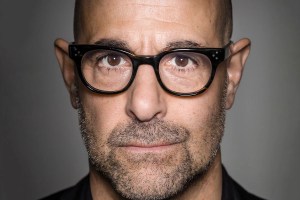Michael Coveney: Critics doubly honoured in New Year list
You might reasonably suppose that any critic honoured for his services to an art form was falling down on the job. After all, as Sibelius once said, no-one would ever build a statue for a critic, and a popular critic is a contradiction in terms.
But in the twin case of Michael Billington and Philip French, both honoured with the OBE in the New Year list for services, respectively, to drama and film, the aptness is incontestable. They are the double doyens of their profession, the best writers and the most experienced and knowledgeable commentators in their field.
When Ken Dodd was given the OBE he was delighted: One Boiled Egg, he said, and the entirely bald French, another Scouser, once dubbed “Radio” Savalas by Jonathan Miller in his days as producer of Critics Forum on the wireless (Telly Savalas was cop baldie Kojak), might well agree. Billington rang French to congratulate him and said, “See you at the Palace…”
The encyclopaedically well-informed French, whom probably only Martin Scorsese could challenge in a world experts’ film quiz, immediately said that Billington’s line cropped up in a 1952 movie, Appointment in London, starring Dirk Bogarde and Bryan Forbes.
The two critics have been friends for 50 years, French once employing a young Billington to review a couple of plays by the then unknown Tom Stoppard. And French himself was a theatre critic for a short time, on the New Statesman, before being appointed The Observer‘s film critic in 1978.
There has only been one knighted drama critic, Harold Hobson (though Max Beerbohm, who was knighted late in life, had succeeded Bernard Shaw as theatre critic on the Saturday Review), two CBE’s (Philip Hope-Wallace, Billington’s predecessor on the Guardian, whom he succeeded in 1971, and Clive Barnes; Alan Bennett said it was like giving Goering the DSO for services to the war effort) and a couple of OBEs (J C Trewin and B A Young).
Dilys Powell, film critic on the Sunday Times during the Hobson years, was made CBE. But James Agate, Hobson’s great predecessor, and the most prodigiously and entertainingly productive of all critics, was never honoured (far too racy, probably), nor was Kenneth Tynan or Bernard Levin, arguably the most brilliant of theatre reviewers, nor Irving Wardle, the most perceptive.
Billington, however, has been a public figure in the theatre, as well as its most respected commentator, as a tireless committee man, lecturer, broadcaster and awards panel member. His book on Harold Pinter is a masterpiece, and his latest tome, State of the Nation, is already a standard work of critical reference and cultural history.
Congratulations, too, to Ruth Mackenzie, London 2012 Festival Director, named a CBE. The Cultural Olympiad seems otherwise to have received short shrift. Danny Boyle has, most uncoolly, let it be known he’s turned down a knighthood, while Stephen Daldry, who masterminded the opening and closing ceremonies, is already a CBE, and Jenny Sealey of Graeae, heavily involved in the Paralympian ceremonies, already an MBE. I would have given something to Patrick Woodroffe, the lighting designer.
Otherwise, it’s quite a thin list for the theatre. Arlene Phillips, brilliant choreographer and former judge on Strictly Come Dancing, gets the CBE, while Nica Burns, theatre owner and producer, is an OBE; many congrats, Nica, for joining Thelma Holt in the lady producer list of honorees, and pipping the prolific Sonia Friedman to royal recognition, perhaps surprisingly.
Erica Whyman is OBE’d, too, as she steps up from Northern Stage in Newcastle to become Greg Doran’s deputy artistic director at the RSC, while Adrian Lester, next year’s Othello at the National, is similarly honoured, alongside Ewan McGregor “for services to drama and charity.” One-time comedian Simon Fanshawe (one of Nica’s earliest Perrier Award winners at the Edinburgh Festival fringe) is made OBE for services to Higher Education; a busy political career in Brighton finds him installed as chair of the council at Sussex University.
And a well-deserved cheer, too, for Catherine Greig, general manager of the Travelling Light company (currently represented by the very good Cinderella at St James Theatre), made an MBE for services to Young People’s Theatre in Britain.
More traditional critical plaudits for Toby Jones and his portrait of Alfred Hitchcock in The Girl on Boxing Day television (one of the few things worth watching over the holiday season). It knocked Anthony Hopkins’ peculiarly monstrous performance in the upcoming movie Hitchcock into a cocked hat.
Hitchcock the movie concentrates on the filming of Psycho while The Girl cheekily references that film while focussing on Hitch’s grubby fantasy of a relationship with Tippi Hedren (superbly well played by Sienna Miller) during the making of The Birds and then Marnie. Jones was a bit small, perhaps, but he was lewd and vicious and correctly Leytonstone-accented. And he spent over four hours each day in make-up, while Hopkins skimped on just 90 minutes. (There’s a great contrast and compare, too, in the radically different views of Hitch’s long-suffering wife, Alma, from Helen Mirren opposite Hopkins and Imelda Staunton with Jones).
It’s very odd that, six years ago, Jones had a similar run-in with Philip Seymour Hoffman when both of them played Truman Capote in more or less the same film. Hoffman’s was called Capote, just as Hopkins is in Hitchcock, while the no less extraordinary performance of Jones was unleashed in Infamous.
How long, I wonder, before Toby gets a jug, or an OBE at least, to add to his just-announced Golden Globe nomination for The Girl, and his Olivier award ten years ago for his hilarious intervention in The Play What I Wrote? He’s a miniature amalgam of Michael Gambon and Simon Russell Beale, and just as good, if not better, than either.
And on that note, may I wish everyone a Happy New Year and as much joy in life as you hope to find in the theatre.












